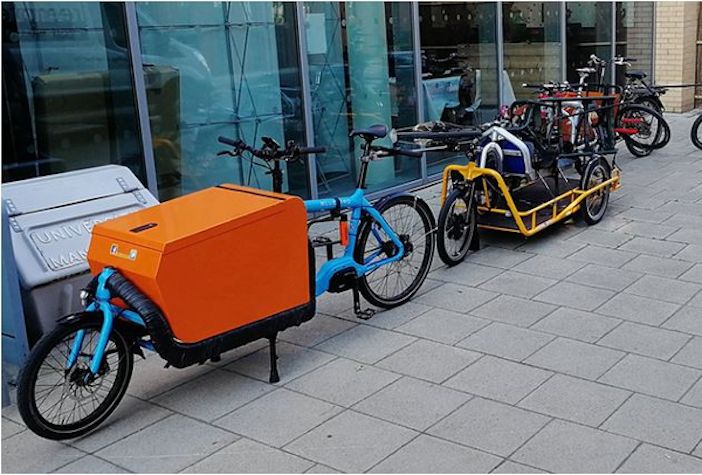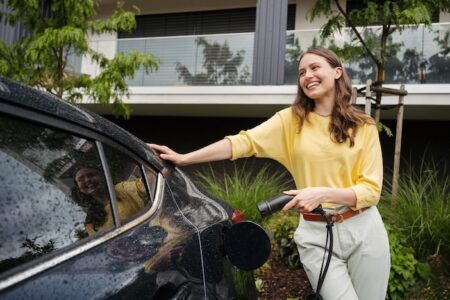The UK government has announced £2m (US$2.6m) of new funding to support the uptake of e-cargo bikes, and proposals to introduce a green license plate for ultra-low emission vehicles (ULEVs), part of the international Zero Emission Vehicle Summit being held in Birmingham, UK, this week.
Hosted by the UK government, the world’s first international Zero Emission Vehicle Summit is bringing together policymakers, industry experts and opinion formers from around globe to tackle carbon emissions and to explore ways to improve air quality.
The new e-cargo bike funding will help pave the way for the nimble zero-emission electric last-mile delivery vehicles to replace older, polluting vans, helping to improve the environment and reduce urban congestion.
The government’s plans will encourage alternate green technologies to counter the increasing usage of diesel delivery vans that has accompanied the boom in internet shopping, and comes as 16 of the UK’s largest van fleet operators have signed up to the clean van commitment in a bid to go electric.
In the last year alone, spending online in the UK increased by 15.3% and the latest road traffic estimates indicate van traffic increased by 4.7% to 49.5 billion vehicle miles in 2016. Most of these vans are diesel-powered, which cause congestion and have a detrimental impact on the environment. Over time the government expects to see increasing numbers of electric vans on the country’s streets, but there is also a place for other delivery modes including e-cargo bikes.
The grant is an early response to the last-mile call for evidence, which asked for views on how the government can harness the opportunities for greener delivery in the commercial and residential parts of UK cities and towns. It also builds on previous government-funded trials for e-cargo bikes last year, where a Department for Transport (DfT) grant enabled London-based company e-CargoBikes to set up its first Micro Hub on an industrial estate in Islington from which grocery delivery trials with Sainsbury’s were conducted. The trials exceeded expectations in its potential commercial viability and efficiency, which showed that 96.7% of orders could be fulfilled in a single e-cargo bike drop.
Jesse Norman, UK Minister for Low Emission Vehicles, said, “Support for e-cargo bikes will help to ensure that Britain leads the way in the development and deployment of the technologies of the future. Encouraging electric delivery bikes on to our city streets will cut traffic and improve air quality, and will show how these vehicles have the potential to play an important role in the zero-emission future of this country.”
As part of its consultation on how to promote awareness of ULEVs, the government is proposing that ‘clean’ cars, vans, and taxis could be equipped with green license plates. The special plates, which are already used by countries including Norway, Canada, and China, could be available on ‘green’ vehicles, such as electric and hydrogen-powered cars, and are thought to encourage take-up among drivers.
As well as promoting zero emission vehicles, green number plates could also help support local incentives for electric vehicles (EVs), such as access to bus or low emission vehicle lanes, electric charging bays or ultra-low-emission-zones.





